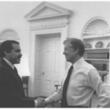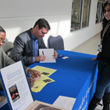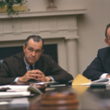Blowing my cover: my life as a CIA spy
Description
More Details
9781705293379
Excerpt
Similar Titles From NoveList
Similar Authors From NoveList
Published Reviews
Booklist Review
Fresh out of Harvard with a head full of memories of the Harriet the Spy series, Moran approached the CIA about becoming a spy. But after five years of isolation from regular life and mounting disappointment in the agency's effectiveness--especially after 9/11--Moran left. In this alternately amusing and disturbing memoir, she recalls the recruitment process, including lie-detector tests and psychological screening; the grueling training at the Farm; and the sexist attitudes of male instructors and fellow recruits. Among her classmates were a former Green Beret and a fellow Harvard grad. Finally posted to Macedonia, Moran is charged with recruiting spies, and she has to use all her training and smarts to keep from being killed. Tired of the lying and the subterfuge and the failure of the CIA to predict or prevent the terrorist attacks of 9/11, Moran--on leave for her brother's wedding--meets a man who pulls her back into the mainstream. Fans of the spy show Alias will enjoy this insider look at a spy agency that has lost its luster. --Vanessa Bush Copyright 2005 Booklist
Publisher's Weekly Review
When Harvard grad Moran entered CIA training in her late 20s, her expectations had more to do with Harriet the Spy and James Bond than with drudge work or service; the reality, as she represents it in this memoir of her training and case work, was a sexist environment filled with career-oriented, shallow people, "an elaborate game for men who'd never really grown up." Beginning in 1998 as a case officer in Macedonia, Moran finds the work dull and admittedly achieves little of note in her brief career; smooth writing and wit regarding the humdrum mechanics of spookdom-from having her alias's credit card rejected for nonpayment to the thousands of little lies she must invent and remember-carry the book. Her apprehension about preying on people from cash-poor economies with bribes is easily overcome; a boyfriend in Bulgaria helps ease her loneliness. During the events of 9/11 neither she nor her field boss have any idea what is going on ("We worked for the CIA for chrissake. Shouldn't we have known?"). Though Moran is a likable spy, the wait for significant insights or breakthroughs goes mostly unrewarded for writer and reader alike. Expressing disillusionment with the U.S. invasion of Iraq, frustration with excessive bureaucracy and desire for a more fulfilling personal life, Moran simply quits one day. Agent, Douglas Stewart at Sterling Lord Literistic. (Jan. 10) (c) Copyright PWxyz, LLC. All rights reserved
Library Journal Review
After graduating from Harvard, Moran applied to the CIA with romantic visions of becoming a spy but did not follow up on her application for another five years. Here she describes the CIA indoctrination program in great detail and quickly reveals how unglamorous-and lonely-life in the CIA really is. The most difficult aspect for Moran was the need to lie to friends and family to maintain her cover. Moran spent most of her five-year stint in Macedonia developing contacts following the Bosnian conflict. Her sense of isolation was exacerbated by increasing anti-American sentiment during that time. Just as it is getting really interesting, the book ends rather abruptly with a naval-gazing 9/11 diatribe, a description of her romance with the man who would become her husband, and her decision to "blow her cover" and leave the CIA. Nevertheless, Moran's former superiors should tap her observational skills, keen intellect, and strong writing to critique the broken system and help move the CIA forward. Recommended for most collections.-Karen Sandlin Silverman, CFAR Ctr. for Applied Research, Philadelphia (c) Copyright 2010. Library Journals LLC, a wholly owned subsidiary of Media Source, Inc. No redistribution permitted.
Kirkus Book Review
The story of a reluctant CIA case officer, told with brio and dark humor by the ex-spy herself. Since she knew she was a pretty good liar, Moran decided to join the CIA. She was also a serious Type-A overachiever, and that fit the profile as well. Helped by bona fides including Harvard, a Fulbright fellowship and a year abroad in Bulgaria, she aced the interview process, but immediately began to suffer misgivings. This would not be a woman-friendly world, she realized; her foreign-born boyfriend would have to be jettisoned, and the agency was bound to be a place rife with petty bureaucratic aggravations. Though Moran never mentions the agency's unsavory reputation, she does admit to being troubled "about the morality of harrying down-on-their-luck foreigners into spying for the United States"--which is pretty much her basic job description. Case officers are not exactly spies; they recruit spies. The memoir's first half chronicles Moran's months in the agency's training program, a stress-filled series of mental and physical tests (including what amounts to torture) that drive home the all-encompassing insularity of life in the CIA, with its culture of paranoia. The author brings a measure of baleful comedy to the proceedings until the narrative hits her posting in Macedonia, where her work becomes increasingly dismal, weighed down by banal paperwork, loneliness, careworn espionage targets and operatives on the scam. Her surroundings also leave Moran appalled and depressed, particularly in Kosovo: "a polluted swath of post-communist wasteland." Melancholy hangs over the text like a long stretch of bad weather, and more than one reader will be surprised at how satisfying it is to spend time in this greasy fog, as Moran dissects a seemingly useless, spendthrift and desperate institution locked into the Cold War past. A streetwise study in disillusionment. Copyright ©Kirkus Reviews, used with permission.
Booklist Reviews
Fresh out of Harvard with a head full of memories of the Harriet the Spy series, Moran approached the CIA about becoming a spy. But after five years of isolation from regular life and mounting disappointment in the agency's effectiveness--especially after 9/11--Moran left. In this alternately amusing and disturbing memoir, she recalls the recruitment process, including lie-detector tests and psychological screening; the grueling training at the Farm; and the sexist attitudes of male instructors and fellow recruits. Among her classmates were a former Green Beret and a fellow Harvard grad. Finally posted to Macedonia, Moran is charged with recruiting spies, and she has to use all her training and smarts to keep from being killed. Tired of the lying and the subterfuge and the failure of the CIA to predict or prevent the terrorist attacks of 9/11, Moran--on leave for her brother's wedding--meets a man who pulls her back into the mainstream. Fans of the spy show Alias will enjoy this insider look at a spy agency that has lost its luster. ((Reviewed January 1 & 15, 2005)) Copyright 2005 Booklist Reviews.
Library Journal Reviews
After graduating from Harvard, Moran applied to the CIA with romantic visions of becoming a spy but did not follow up on her application for another five years. Here she describes the CIA indoctrination program in great detail and quickly reveals how unglamorous-and lonely-life in the CIA really is. The most difficult aspect for Moran was the need to lie to friends and family to maintain her cover. Moran spent most of her five-year stint in Macedonia developing contacts following the Bosnian conflict. Her sense of isolation was exacerbated by increasing anti-American sentiment during that time. Just as it is getting really interesting, the book ends rather abruptly with a naval-gazing 9/11 diatribe, a description of her romance with the man who would become her husband, and her decision to "blow her cover" and leave the CIA. Nevertheless, Moran's former superiors should tap her observational skills, keen intellect, and strong writing to critique the broken system and help move the CIA forward. Recommended for most collections.-Karen Sandlin Silverman, CFAR Ctr. for Applied Research, Philadelphia Copyright 2005 Reed Business Information.
Publishers Weekly Reviews
When Harvard grad Moran entered CIA training in her late 20s, her expectations had more to do with Harriet the Spy and James Bond than with drudge work or service; the reality, as she represents it in this memoir of her training and case work, was a sexist environment filled with career-oriented, shallow people, "an elaborate game for men who'd never really grown up." Beginning in 1998 as a case officer in Macedonia, Moran finds the work dull and admittedly achieves little of note in her brief career; smooth writing and wit regarding the humdrum mechanics of spookdom-from having her alias's credit card rejected for nonpayment to the thousands of little lies she must invent and remember-carry the book. Her apprehension about preying on people from cash-poor economies with bribes is easily overcome; a boyfriend in Bulgaria helps ease her loneliness. During the events of 9/11 neither she nor her field boss have any idea what is going on ("We worked for the CIA for chrissake. Shouldn't we have known?"). Though Moran is a likable spy, the wait for significant insights or breakthroughs goes mostly unrewarded for writer and reader alike. Expressing disillusionment with the U.S. invasion of Iraq, frustration with excessive bureaucracy and desire for a more fulfilling personal life, Moran simply quits one day. Agent, Douglas Stewart at Sterling Lord Literistic. (Jan. 10) Copyright 2004 Reed Business Information.


































